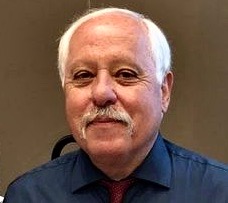Last
weekend, I attended a memorial for my friend Arnold Ismach, former dean
of the University of Oregon School of Journalism and Communication (SOJC). More of a tribute, friends, colleagues and family gathered in Allen Hall to honor this amazingly remarkable fellow.
Arnold, who passed away last month, was dean of the UO SOJC when I was hired as an adjunct faculty member of the school in 1986. Though my hiring was initiated by Associate Dean Ken Metzler and Professor Tom Bivins, the head of the public relations sequence in those days, it was Arnold who ultimately signed off on faculty hirings.
In her opening remarks, Interim Dean of the UO SOJC Julianne Newton noted that she heard from Arnold regularly, and the two had met for lunch recently. She wouldn’t be the only one. Arnold -- who retired in 2000 -- was seemingly everywhere, from Planned Parenthood meetings to PRSA luncheons, where I’d see him.
Julie
said she knew well that Arnold deeply cared for the school, and that she had the
sense that he always had her back. That certainly was my experience. Arnold
provided counsel for me on a number of occasions when I was just getting my
feet wet as an instructor of undergraduate courses in public relations in the
late 80s.
In one case, I had met with a student who was lobbying for a higher
grade. After refiguring the math, I explained that the grade would need to
stand as recorded. First she cajoled, then she got nasty: she called me a
“racist.” I was horrified. Seeking counsel, I met with Arnold to warn him that
an appeal was likely coming his way.
“Did
she deserve the grade she received?” he asked. “Yes,” I replied. “I believe it
was fair.” From my perspective, I was just upholding the rigorous
standards that I had been held to as an undergraduate in the UO SOJC. “Then I
support your decision 100 percent,” he said. Arnold had my back. The student’s appeal
was eventually denied.
In another instance, one of
my students -- a graduate teaching fellow who edited Slugline, the school’s newsletter in the late 80s -- asked me to
write an article for the publication about my experience as a wilderness ranger
for the Forest Service. Admittedly, it was a rather strident piece about tourists, though I
considered it satire.
After
it was published, an alumnus of the UO SOJC complained about the tone and style
of the piece in a letter to Arnold. I was mortified. But Arnold was matter-of-fact.
“Everybody has an opinion,” he wrote on a copy of the letter he sent to me. He
wasn’t upset in the least. He just wanted me know about it. It was a good
lesson.
Arnold was a staunch
defender of the First Amendment, as several speakers noted at his tribute. He championed freedom of speech and freedom of the press as the
hallmarks of a free and democratic society. In retirement, he was a regular
letter writer to The Register-Guard and Eugene Weekly, among other publications.
A defining characteristic was that he
always “showed up." Whether he was at
the City Club of Eugene or the Public Relations
Society of America, Arnold was always ready to contribute to meaningful discussion
on topics of the day.
His
sense of humor and humble nature were legendary. At PRSA luncheons, where
participants introduce themselves and their employers, Arnold always had a ready quip: “My name is Arnold Ismach, and I’m a nobody from nowhere.” After a pause, he’d note he was actually “a spy from the Society of
Professional Journalists.”
Perhaps most importantly, though, Arnold cared about
each person as an individual, and was an “active listener,” as another speaker pointed out.
Maya Angelou said that “people will forget what you said, people
will forget what you did, but people will never forget how you made them feel.”
Arnold made each and every one of us feel important.







No comments:
Post a Comment